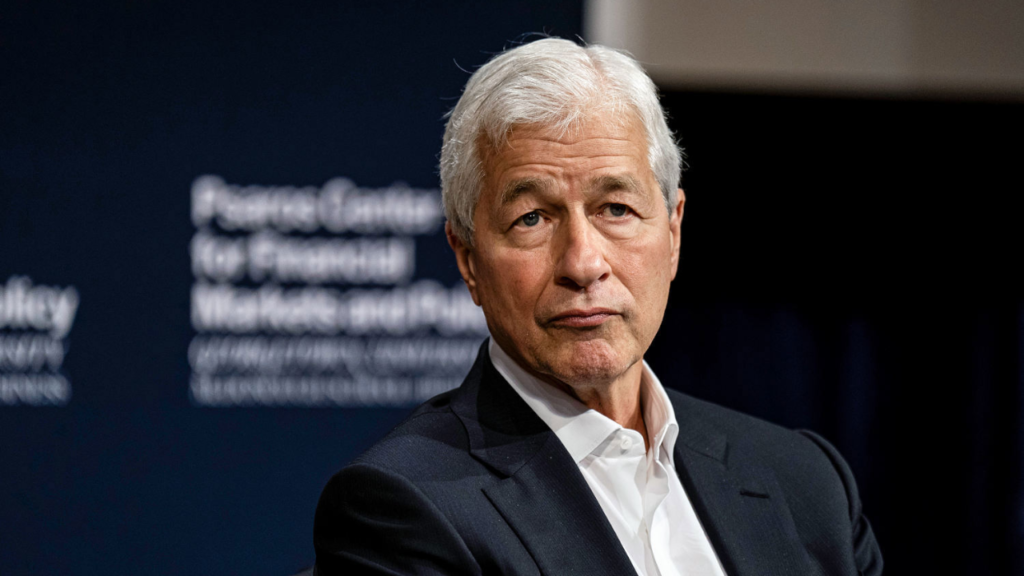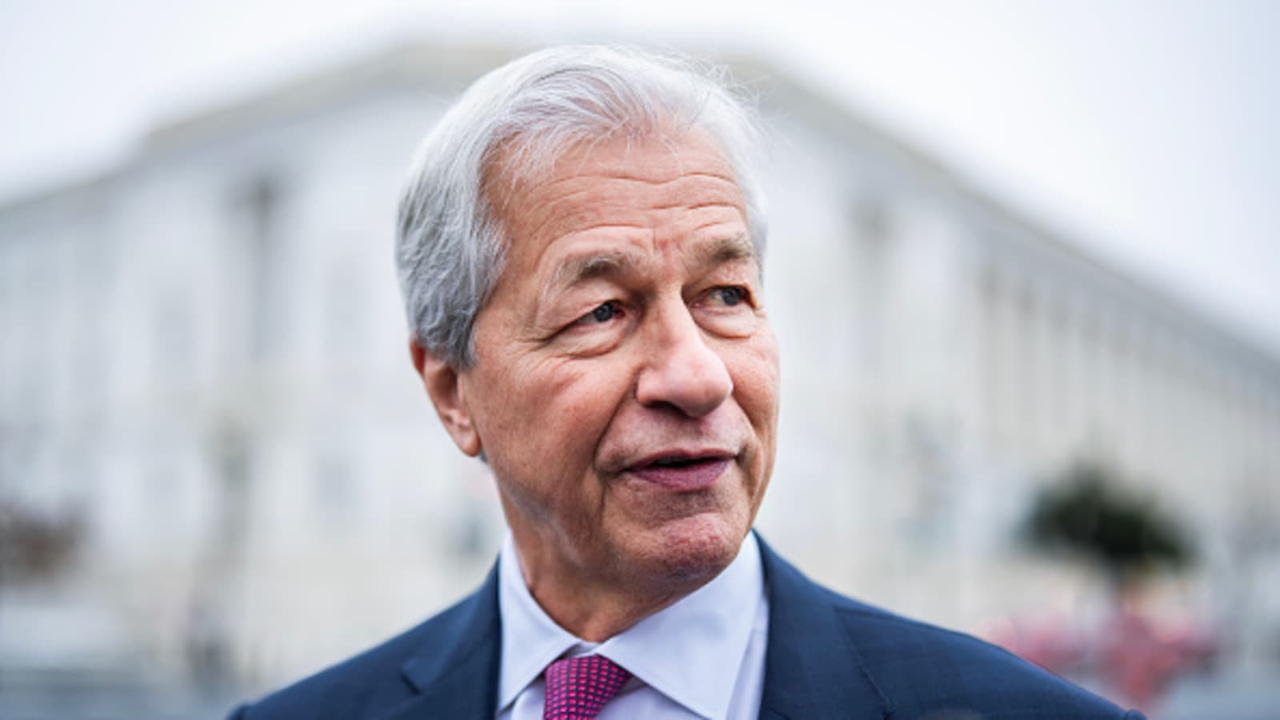Elon Musk is once again at the center of attention — not for launching rockets or reinventing electric cars — but for waving a chainsaw on stage and pushing a movement that aims to overhaul how the U.S. government spends money.
This bold approach is being driven through the Department of Government Efficiency, also known by the acronym DOGE. It’s Musk’s latest attempt to shake up the system, and it’s turning heads in both political and financial circles.
At a recent event, Musk dramatically brought a chainsaw on stage, a symbol of what DOGE plans to do — aggressively cut through government waste and excessive regulations.
While some critics may see it as a publicity stunt, others are taking notice, including JPMorgan Chase CEO Jamie Dimon.
In a candid interview with CNBC’s Leslie Picker, Dimon didn’t hold back. He pointed out what many Americans have felt for years: that the U.S. government is bloated, inefficient, and needs serious reform. “The government is inefficient, not very competent, and needs a lot of work,” he said.
When asked if he supports the “chainsaw approach” taken by DOGE, Dimon didn’t give a straightforward yes or no. Instead, he emphasized that the government’s problems go beyond just waste and fraud. The bigger question, according to him, is whether the money being spent is producing the right outcomes.
“It’s not just waste and fraud, it’s outcomes,” Dimon explained. “Why are we spending the money on these things? Are we getting what we deserve?
What should we change? I think doing that needs to be done.” He added that he hopes the initiative succeeds.
While Musk’s DOGE might be focused on fixing issues at the national level, Dimon’s comments offer a timely reminder that efficiency is just as important in our personal lives.
It’s not just about spending less — it’s about making sure every rupee or dollar you spend is worth it. If the government can be held accountable for how it uses taxpayer money, maybe individuals should hold themselves to the same standard.
So, where can everyday people cut the fat and make their money go further in 2025? There are a few places where inefficiency often creeps into personal finances, and the good news is, they’re areas where improvements are possible without much effort.

Let’s start with car insurance. For many people, it’s a recurring expense that eats into their monthly budget. According to a Forbes report, the average car insurance cost in the U.S. in 2024 was $2,150 per year — that’s roughly $179 per month.
But this number can vary a lot based on your location, driving history, and the type of car you drive. What’s surprising is that many people don’t even realize they’re overpaying. They sign up once and stick with the same provider for years.
A smarter option is to compare rates regularly. Services like OfficialCarInsurance.com let you compare multiple offers from top providers like GEICO, Allstate, and Progressive — and some drivers are finding rates as low as $29 a month. That’s a simple way to cut waste and keep more money in your pocket.
Another often overlooked money drain? Bank fees. You might not notice them at first, but they add up over time. Maintenance fees, overdraft penalties, and surprise charges can slowly eat away at your savings.
Even comedian Bill Burr joked about it on a podcast, saying his bank was charging him $28 every month “for no reason.” Traditional banks often have high overhead costs, and they pass those costs onto customers through fees.
That’s why many people are turning to online banks. These banks typically offer lower fees, higher interest rates, and better digital services.
For example, Wealthfront offers a high-yield cash account with a 4.00% APY and no maintenance fees. You can get started with just $1, and access your money 24/7. Switching to an online bank might be one of the easiest financial upgrades you can make.
Finally, there’s life insurance — something most people agree is important but don’t always manage efficiently. Rates are going up. The Swiss Re Institute says life insurance premiums are expected to grow by 3% annually in 2025 and 2026.
If you already have a term life insurance policy, it might be worth taking a second look. Many policies let you cancel at any time without penalties, giving you the freedom to switch to a better, more affordable plan. Companies like Ethos allow you to apply for term life coverage in minutes — no doctor visits or blood tests required.
You can get up to $2 million in coverage starting at just $2 per day. In a world where prices are rising everywhere, locking in affordable life insurance can provide peace of mind and long-term savings.
All these examples show that inefficiency isn’t just a government problem. It’s something that affects your household too. Whether you’re managing a family budget or your solo finances, small changes can make a big difference over time.
Jamie Dimon may have been talking about Washington, D.C. when he said the government needs to do better, but his point hits home for all of us. In the same way we expect public money to be used wisely, we should expect the same from ourselves.
Whether it’s car insurance, banking, or long-term planning like life insurance, taking a closer look at your finances can help you avoid unnecessary costs and make your money work smarter.
In the end, whether or not Musk’s DOGE becomes a permanent fixture of the federal bureaucracy, the message is clear: waste is everywhere, and the best time to start cutting it is now.
Disclaimer- Our team has thoroughly fact-checked this article to ensure its accuracy and maintain its credibility. We are committed to providing honest and reliable content for our readers.






